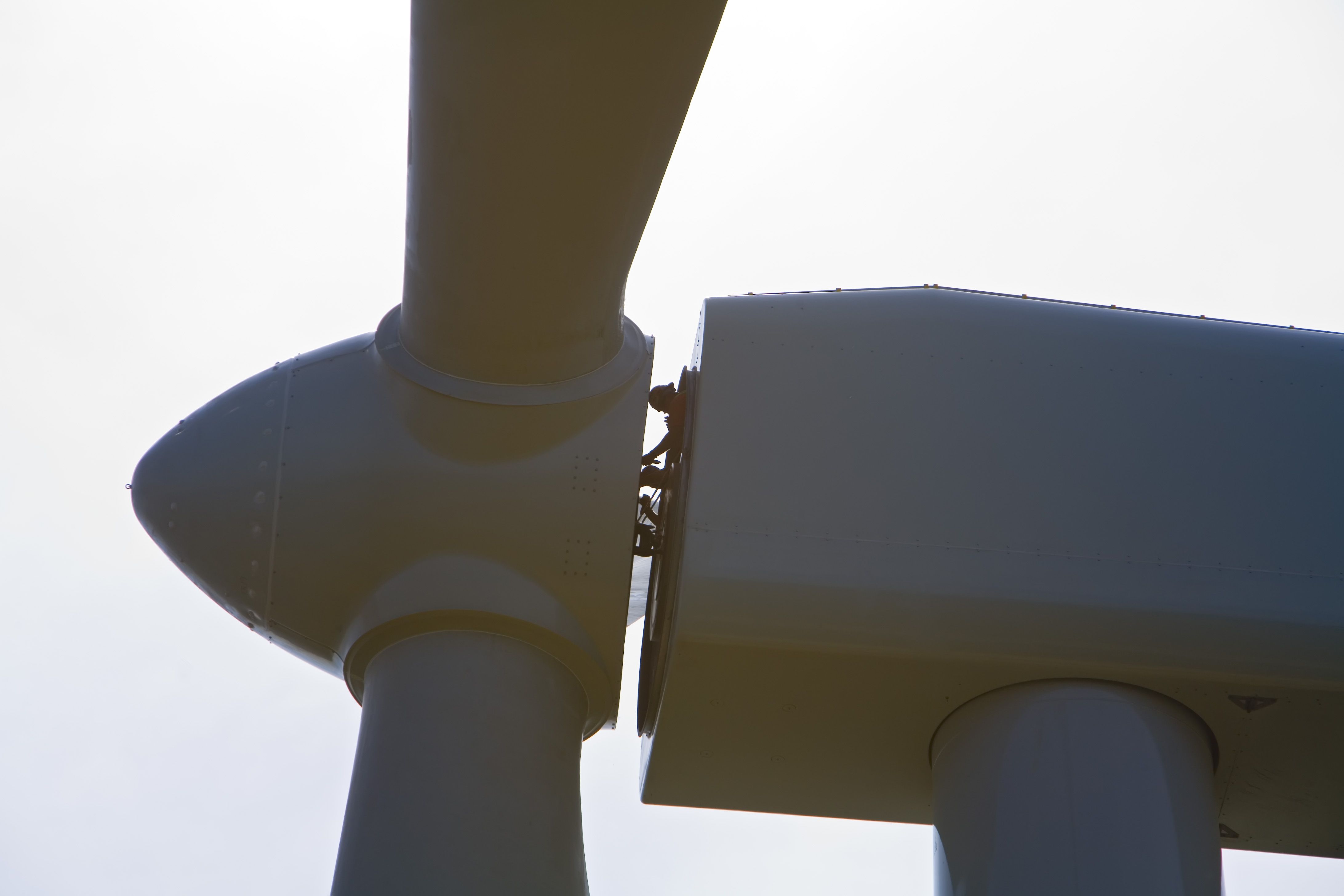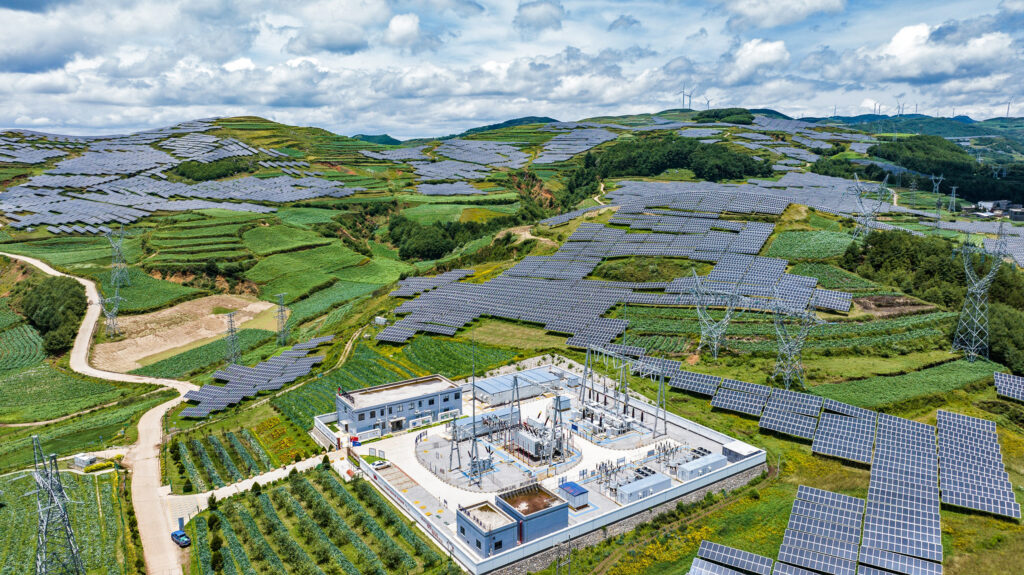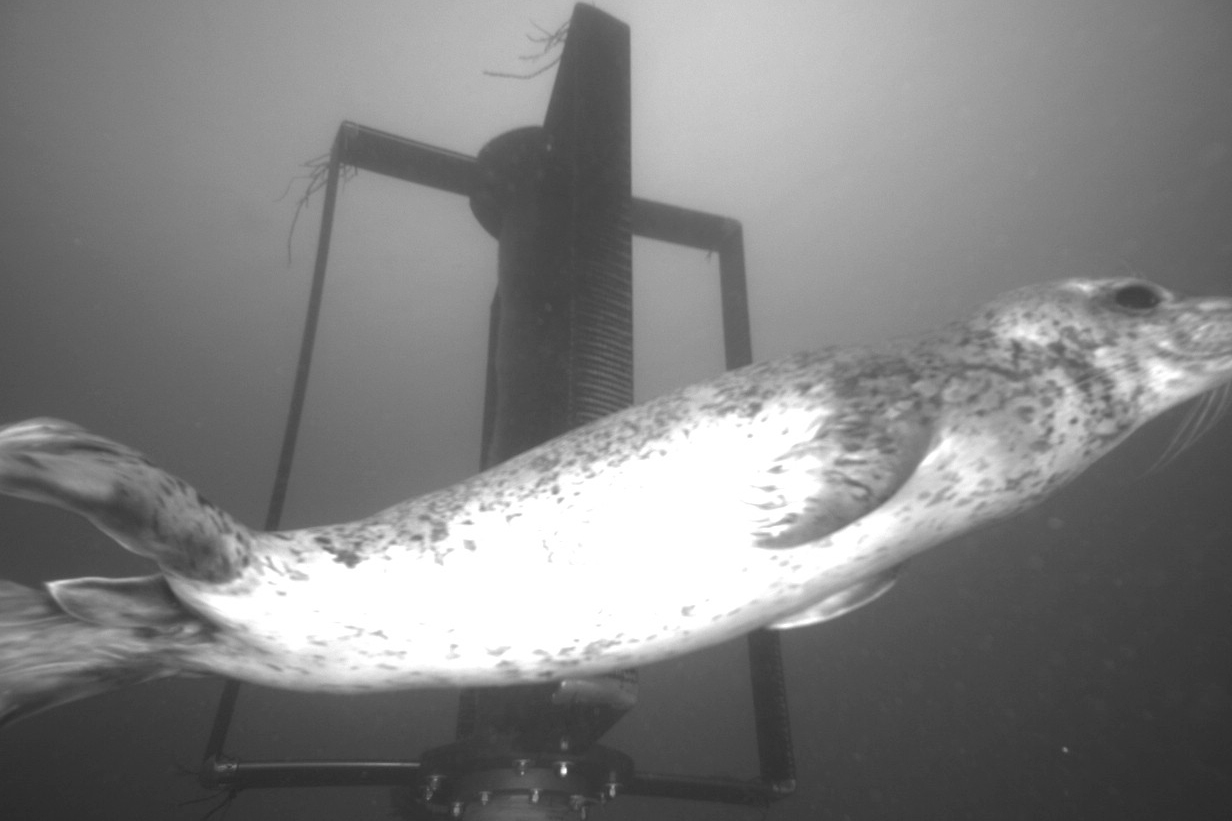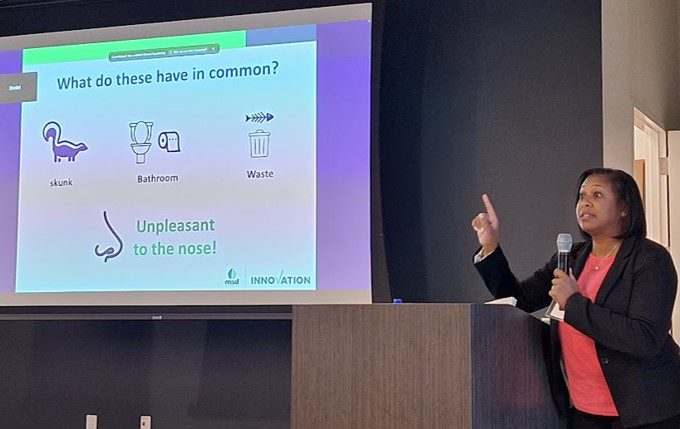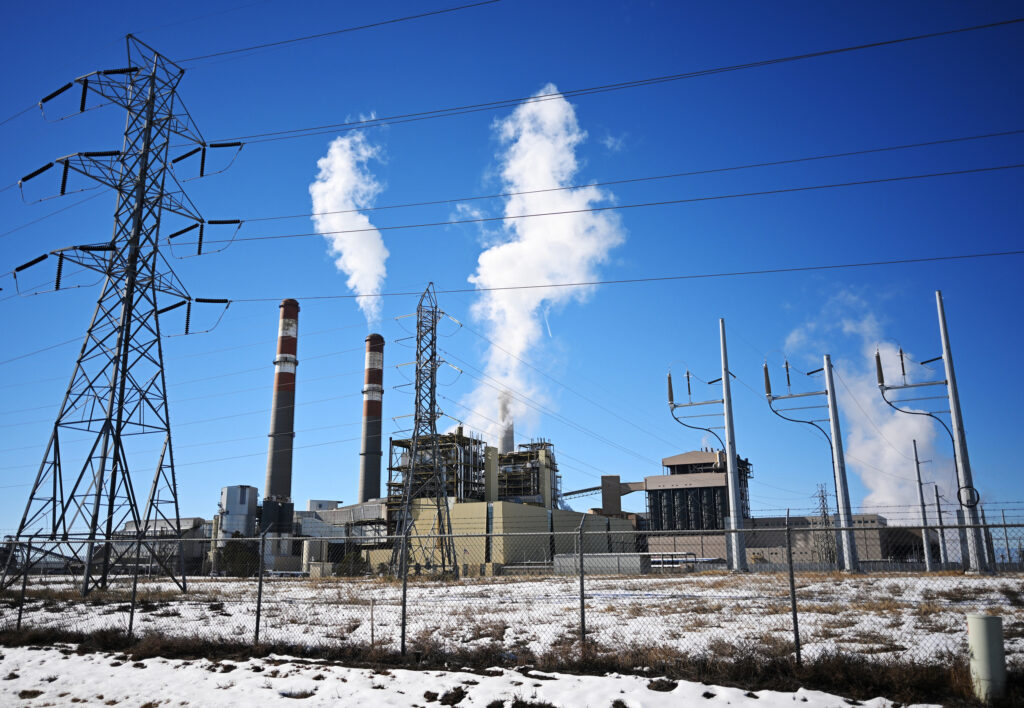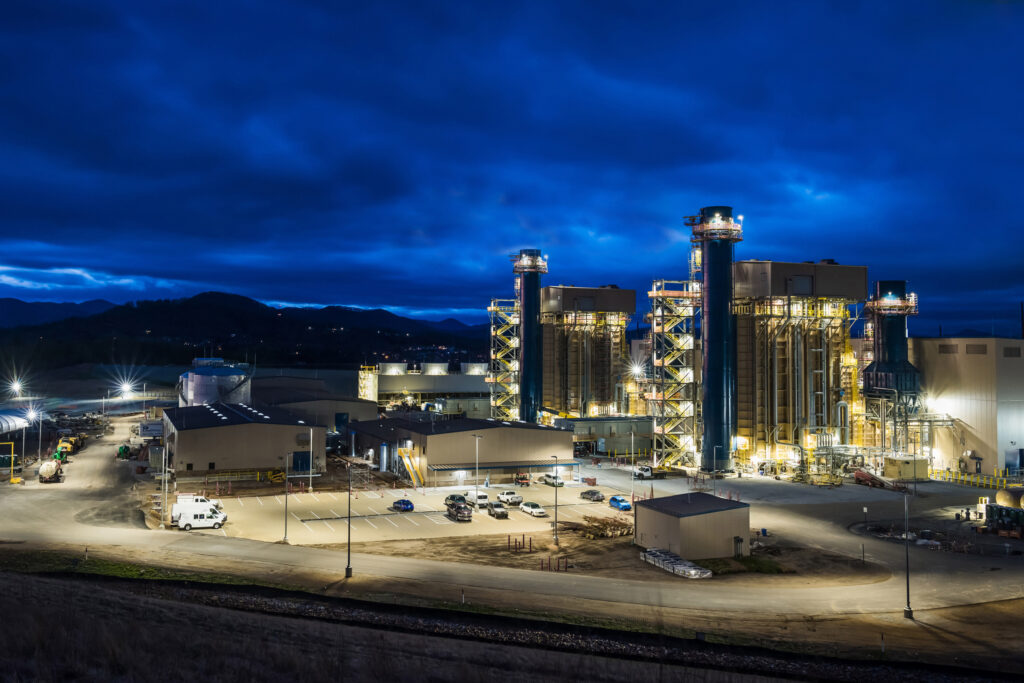BLYTHEWOOD, S.C.—On their way to a groundbreaking last week for a massive new electric vehicle plant, designed for the rebirth of an iconic American brand, guests first had to walk past a phalanx of vintage Scout sport utility vehicles.
About a dozen of the pioneering Scouts, all gas- and diesel-powered and well over 40 years old, adorned the entrance to the staging area, beside their proud owners, as backhoes and bulldozers worked in the distance. Inside a barn with the words “Forging the Future” painted on the side, photos of old Scouts lined the walls while tech-savvy young Volkswagen reps shared tablets offering visitors virtual 3-D tours of the scale model display in the center of the room.
“I think I’m pretty good at seeing around corners, but I never saw this coming,” said Bill Hartnagel, of Lake Lure, North Carolina, standing near his black 1974 Scout, replete with a racing stripe and refurbished engine. “Out of the clear, blue sky there’s this European company, Volkswagen, saying, ‘We’re going to keep the brand alive.’”
Volkswagen has wagered $2 billion on the belief that by melding the automotive past and future on this 1,100-acre plot of former timberland, it can build an electric vehicle that will change the way Middle America thinks about EVs. The company is reviving the Scout, the original sport utility brand the farm equipment manufacturer International Harvester produced from 1960 to 1980 in Fort Wayne, Indiana, as an all-electric truck. Building the electric Scouts in a new factory here in South Carolina has certain advantages, not the least of which are the Made-in-America incentives for consumers and manufacturers in the Inflation Reduction Act of 2022, or the IRA, President Joe Biden’s signature climate action achievement.
We’re hiring!
Please take a look at the new openings in our newsroom.
See jobs
The groundbreaking and community meet-and-greet, coming the week before South Carolina’s Feb. 24 Republican presidential primary, underscored the links between the EV future and politics. State and local politicos were on hand, including Republican Gov. Henry McMaster. The project could not have happened without government support—both state and federal. But continued federal support for electric vehicles hangs in the balance, as both Republican presidential candidates have made clear they would seek to pull the plug.
Former president Donald Trump—polling 30 points ahead of former South Carolina Gov. Nikki Haley in her home state—has made anti-EV tirades a regular feature in his campaign rallies. That includes his visits to South Carolina, a state where 14 EV and battery manufacturing projects have been launched since passage of the IRA, an investment of $12 billion, expected to create 10,000 new jobs.
“We are a nation whose leaders are demanding all-electric cars,” Trump said Feb. 10 in Conway, South Carolina, as mournful music played in the background, “despite the fact that they don’t go far, they cost too much, and whose batteries are produced in China, with materials only available in China, when an unlimited amount of gasoline is available inexpensively in the United States but not available in China.”
Given Trump’s hold on the Republican base, his harsh anti-EV stance generates dissonance not only for pro-EV state leaders like McMaster, an outspoken Trump supporter, but for companies like Scout Motors that are seeking to widen the appeal of electric vehicles. If the idea of EVs as unreliable, costly and un-American becomes GOP dogma, even if that isn’t true, is it something even the legendary marketing prowess of the automotive industry can overcome?
EV advocates believe political leaders, especially in red states such as South Carolina, face a choice that will be critical to the future of electric vehicles in the United States.
“Policymakers must choose,” said Stan Cross, electric transportation director for the Southern Alliance for Clean Energy. “Do they want their states and our nation to lead in the expanding global EV market? Or do they wish to send investments and jobs overseas? You either lead or follow. There is no middle of the road.”
From Begging to Choosing
Electric vehicles were far from the thoughts of officials of Richland County—in the heart of South Carolina’s Midlands region—when they acquired two large family-owned timber tracts for industrial development more than 20 years ago. Initially, they saw it as an ideal spot for a semiconductor facility, but even then, chip manufacturing was moving to Asia, recalled Jeff Ruble, who has directed the Richland County Economic Development Office for the past eight years. (Before that, he worked in economic development in the same region for its association of electric power cooperatives.)
For the next two decades, county leaders pursued possibilities, envisioning one day opening an office park with a variety of businesses, possibly in pharmaceuticals or life sciences. “We were aiming for something like you’d see outside of Boston or in New Jersey,” Ruble said.
Then came 2022. On Aug. 16, Biden signed into law the Inflation Reduction Act, with its $370 billion in federal funding for clean energy, the most significant action that Congress has ever taken to address climate change. The legislation’s offer of unprecedented tax credits and other incentives for manufacturing on U.S. soil had an almost immediate effect.
Within one month, 17 new clean energy projects worth $10 billion were announced nationwide, including Swiss company ABB E-mobility’s plan to build a $4 million EV charging factory in Columbia, South Carolina’s capital and second-largest city, and the government seat of Richland County. Even more was happening behind the scenes, Ruble said.
“All of the sudden, EV came to life,” he recalled. “For me, where I’d spent my whole career begging companies to come here, all of a sudden we had five or six companies all looking at that site at the same time for massive investments.”

None were as big as Volkswagen’s $2 billion plan to revive Scout, a brand it had acquired in 2020 when it bought International Harvester’s successor company, Navistar. Scout Motors, operated as an independent VW spinoff company, would build a plant capable of churning out 200,000 electric SUVs annually, in the process, creating 4,000 jobs.
But Volkswagen was looking at a list of about 70 potential sites nationwide, and South Carolina and Richland County had to work to win the deal.
McMaster, who had signed an executive order weeks earlier declaring South Carolina’s intent to support the electric vehicle industry, pushed to get a $1.3 billion incentives package for Scout through the Legislature—despite opposition from some members of his own party, belonging to the ultra-conservative Freedom Caucus. Lawmakers ultimately decided on a bipartisan basis to draw on the state budget surplus to support the Scout deal. The state will build a new interchange on Interstate 77 to serve the Scout facility, and a railway bridge that will carry a new Norfolk Southern spur into the site complex so the company can transport finished vehicles to customers by rail. The state will build and operate an on-site job training center. And Scout will receive a $200 million state loan for extensive soil stabilization work at the site.
In addition to the incentives, though, the Blytheville location had its own appeal. Richland County boasts the youngest workforce in the state, as home to the University of South Carolina and Fort Jackson, the base where roughly half the soldiers that enter the U.S. Army each year attend basic training. And it is not too close to, and yet not too far from, South Carolina’s other auto industry hub, BMW’s mammoth Plant Spartanburg, which has transformed the upstate region since opening in 1994. BMW, which employs 11,000 workers of its own, uses more than 500 South Carolina suppliers—creating an estimated 25 outside jobs for every 10 inside the plant.
State and local officials are hoping that Scout can build on the supply chains already in place in South Carolina, and become a similar job-creation engine in the Midlands.
Soon after the IRA was signed, in October 2022, BMW announced its seventh expansion at Plant Spartanburg, a $1.7 billion investment in EV production and a high-voltage battery assembly plant in nearby Woodruff. The law was specifically designed to spur such investments. It provides as much as $7,500 in tax credits for EV car buyers, but only for purchase of vehicles where final assembly and battery component manufacturing occurred in North America. There are further incentives for extraction or recycling of critical minerals in the United States or countries with which the nation has a free trade agreement. The IRA also provided federal grants and tax incentives directly to U.S. manufacturers, including for the use of clean energy.


In a question-and-answer session with reporters at the groundbreaking, Scott Keogh, the president and chief executive of Scout Motors, said the federal incentives were a crucial part of the company’s decision-making process.
“Certainly it led to a tipping point,” said Keogh, who previously was president and CEO of Volkswagen Group of America. “And I think you’re seeing that tipping point not only for Scout, but you’re seeing it across the industry.”
Indeed, tracking by the nonprofit advocacy group Environmental Entrepreneurs shows that 278 new clean energy projects in 41 states worth $113.8 billion have been announced since enactment of the IRA. North Carolina, Georgia, and South Carolina have been the top three states for investment.
Keogh was quick to emphasize that the company is confident that the force that will continue to propel the project forward is not government policy, but market demand.
“First and foremost, it’s always going to be a consumer proposition,” Keogh said. “You need to have a product that a consumer wants to buy, because legislation can always move and it can change as you go.”
And the company thinks the key is to build on the brand of an offbeat mid-20th century sport utility forerunner that has proven appeal among a loyal community of devotees.
An Electric Jolt for a Truck with Heart
Bill Hartnagel, one of those avowed enthusiasts, shows off the modern Chevrolet LS engine he had installed in his ‘74 Scout model so it would “sound less like Chitty Chitty Bang Bang.”
A retired psychiatrist, Hartnagel mulled why the Scout name stayed alive 44 years after the last one rolled off the assembly line. “There was a heartbeat there,” he said. “Guys just fall in love with this truck. It’s utilitarian and full of adventure. It has its roots in America.”
Hartnagel’s LS conversion was done by “The Scoutman,” a.k.a. Dustin Reed, who runs a business restoring and reviving old Scouts in Winston, Georgia. He’s worked on many of the models displayed around the groundbreaking site and traveled to Blythewood for the celebration. “I want to help in any way we can,” he said.
For years, Scout buffs have been connecting online, posting YouTube videos describing how they’ve rebuilt carburetors, retrieved rusty rare models from old barns, painted frames or adorned them with rally stripes. And the new Scout Motors is purposefully building anticipation for its new EV by enlisting these oil-stained hands.
At the groundbreaking, the podium was adorned with a brick from International Harvester’s original Indiana factory that will be used in the foundation at Blythewood. “I think you can’t have a future unless you respect your past,” Keogh said.


But the idea of an all-electric Scout is a jolt to some of the people the company is trying to welcome into its new community.
Hartnagel noted that there are no charging stations in the rural foothills of North Carolina where he lives. “I haven’t warmed up to electric vehicles, yet,” he said, “but I’m starting to.”
Some guests, while voicing excitement about the plant, wondered if Scout is dead-set on electric. “I’m not a fan of electric vehicles, so I’m hoping that they will make it into more of a hybrid,” said Jimmy Martin, a real estate agent and representative of the Greater Blythewood Chamber of Commerce: “When you think of Scout, you think of going outdoors, riding around on backroads, country roads and stuff like that. There’s not a lot of power stations around, so I wish they would do a little bit of both.”
The 2024 Race: A Megaphone for EV Doubts
One problem that Scout—and all U.S. makers of electric vehicles—face is that even as EV range improves and the nation’s EV charging network expands, thanks in part to billions of new dollars in federal support, doubts about EVs are being amplified on the biggest public platform in the nation: the U.S. presidential race.
“Here’s the problem with electric cars: They don’t go far,” Trump said at an Iowa rally in December. “They cost a fortune.”
Haley, who has pledged to stay in the Republican race despite struggling to catch Trump in the polls, has been no more supportive of EVs. “Americans don’t all want electric cars,” she said during a CNN Republican Presidential Town Hall in January. “Quit telling them how to live.” Haley has said that she would “roll back all of Biden’s green subsidies.”
Trump, meanwhile, has made clear that if given another chance in the White House, the energy choice his administration will promote is oil. “We’re going to drill,” he said in Iowa. “We’re going to be drilling like you have never seen before.”
The oil-centric rhetoric is no coincidence. Leading backers of the Trump and Haley campaigns are, respectively, the two top oil and gas industry donors this election cycle, according to the Center for Responsive Politics’ OpenSecrets database. Chief Executive Tim Dunn’s CrownQuest, based in Texas’ Permian Basin, is near the top of Trump’s list of corporate backers, giving $5 million to his Make America Great Again PAC. And the donor network of the Koch family, which made its billions in the petrochemical industry, has spent a staggering $31.1 million in support of Haley through its Americans for Prosperity Action SuperPAC.


McMaster, one of a number of prominent GOP politicians that Haley knocked around on her way to the governor’s mansion earlier in her career, has come out as a strong supporter of Trump, even leading a delegation of South Carolina Republicans that took the stage with the former president last month in New Hampshire. McMaster says he doesn’t worry about the Scout investment or the other EV and battery projects he has promoted across the state being harmed by a sharp downshift in federal policy if Trump is elected.
“What we’re doing is following the market,” McMaster said. “What President Trump is opposed to—what most people are opposed to—is federal mandates. ‘You have to get a vaccine, you have to do all sorts of things.’ We don’t want mandates, but what we do understand is that electric vehicles are part of the future. In South Carolina, we’re following the market and we can be ready for when things happen.”
This story is funded by readers like you.
Our nonprofit newsroom provides award-winning climate coverage free of charge and advertising. We rely on donations from readers like you to keep going. Please donate now to support our work.
Donate Now
In fact, there are currently no federal electric vehicle mandates, but the Biden administration is considering tailpipe emissions standards that could push carmakers toward faster electrification. Those rules, an even more stringent plan by California to ban sales of gas-powered vehicles by 2035, and even the tax credits and other EV incentives already in place under the IRA, all would surely be targeted under a Republican administration.
Research suggests that won’t stop the electric drive future, but it could slow it down—meaning it would take longer for Scout Motors and South Carolina to recoup their big investments. In a peer-reviewed study last year, researchers at the California-based think tank Energy Innovation concluded that the incentives contained in the IRA alone could drive U.S. electric vehicle sales to make up as much as 52 percent of the new car market by 2030. Without those incentives, they calculated that uptake would be as low as 22 percent of new car sales.
Aiming for an EV Workhorse
Scout executives on the scene in South Carolina said they are determined to be part of the force driving those electric vehicle sales numbers higher, with or without federal incentives, and to build excitement, they will be releasing concept images of the new EV Scouts later this year.
Jan Spies, chief production officer for Scout Motors, said he hopes potential Scout EV buyers can envision them going through water, off-road, uphill, downhill; he promised they will be workhorses, just as the original Scouts were.
“We think in some respects even better than the normal combustion engine,” he said. “When it’s about torque, when it’s about having speed right from zero, when it’s about pulling stuff—even better, absolutely.”


Also important: Scout is targeting a price of $50,000—well within the price caps under IRS rules, so buyers can qualify for the $7,500 federal EV tax credit.
But EV advocates say it will take more than auto industry marketing to widen EVs’ appeal in the United States. It will take stronger support across the board from political leaders—both Republican and Democrat—and stronger government action.
For example, South Carolina now provides a 25 percent tax credit to anyone installing an “alternative fuel” filling station, but it only covers natural gas or liquefied petroleum stations. The SC Electric Transportation Network has been working to get that incentive extended to cover EV charging stations, but a bill stalled in the state Senate last session. “Lack of EV charging infrastructure is the No. 1 barrier to adoption we’ve found in the state,” said Evan Renshaw of the Conservation Voters of South Carolina, who leads the EV network.
Renshaw says EV advocates have to be cautious to stress economic development, and not the environment, when they make their pitch in GOP-dominated Columbia. “The word ‘climate’ is not one that I try to use,” he said. “It will definitely turn off a lot of people.”
The result: South Carolina’s current mix of policies is drawing a lot of EV project development but only 1.8 percent of all vehicles registered in the state are electric or hybrid, about half the national average. South Carolina, in fact, ranks in the bottom 10 for EV adoption, along with nine other states that voted for Trump in 2020, while the top 10 states for EV uptake all voted for Biden. It’s a partisan chasm that Scout and other EV automakers will have to cross to succeed.


Chip Felkel, a longtime South Carolina Republican political operative who opposes Trump, has been dismayed at the former president’s rhetoric that is so clearly at odds with what is happening in the state. “[EVs are] not all made in China,” Felkel said. “A whole bunch of them are gonna be made in South Carolina.”
But Trump’s lock on the Republican base is so strong that GOP leaders in the state won’t risk taking him on directly, Felkel said: “They bend the knee.”
South Carolina has learned over the years, however, that it takes political leadership to catalyze transformative change—as when Felkel’s political mentor, the late GOP Gov. Carroll Campbell, worked to bring BMW to the state in the early 1990s. And Felkel applauded the work state leaders have done to make sure the state does not miss the EV wave. “State lawmakers and the governor really did step up and push to make this Scout deal happen,” he said.
Felkel thinks such projects—along with a lot of buildout of charging infrastructure—will ultimately change perceptions. “Scout’s going to make it cooler than it would have been,” he said. “That brand is not a blue brand; that brand is a red brand.
“I’m not sure we’re going to ever get to looking at [electric vehicles] as a red state technology,” Felkel added. “But we’ll move into maybe more purple, in terms of everything about EVs.”




